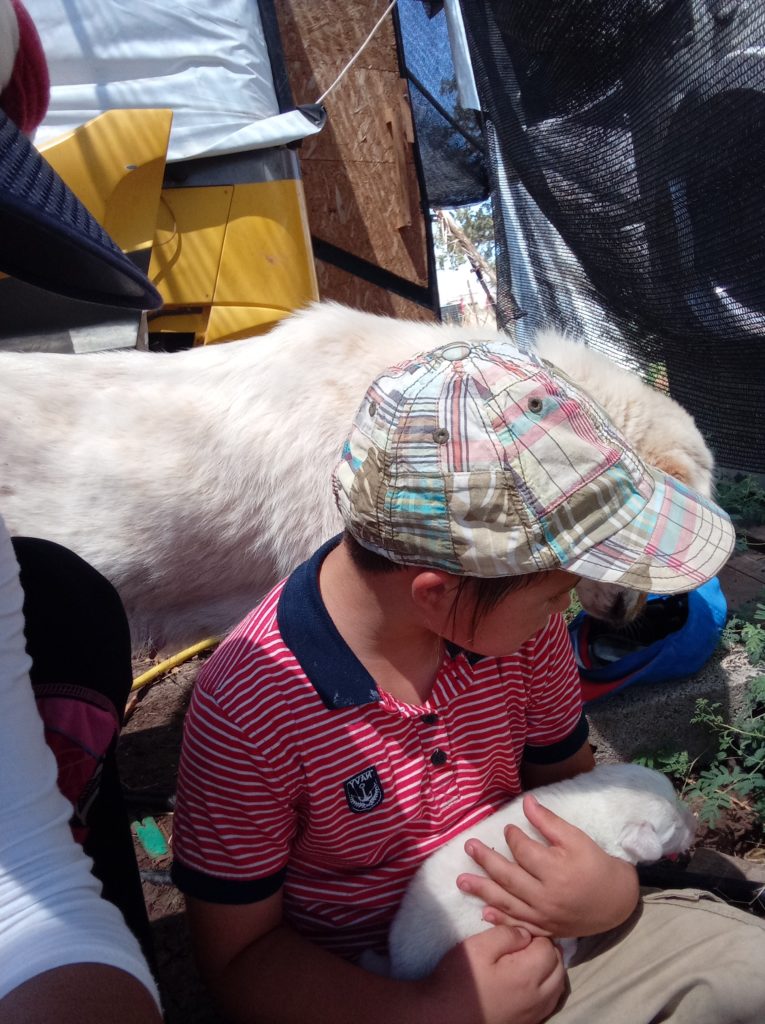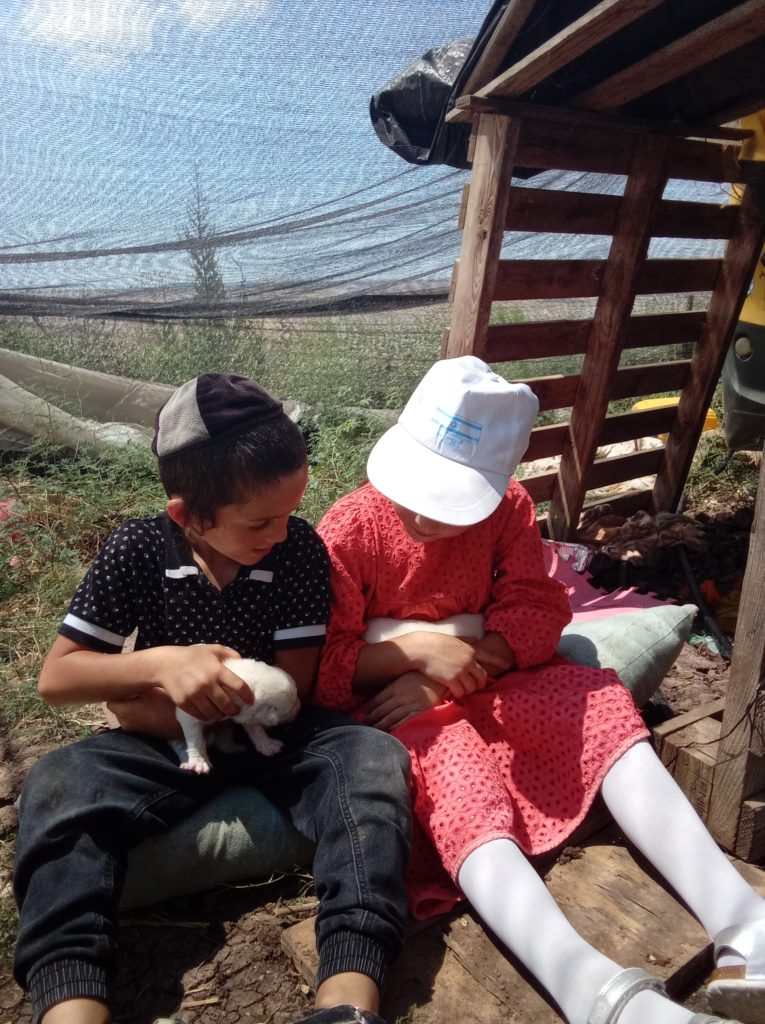This week there was a fire on the mountain opposite us. The kids excitedly ran around exclaiming over the airplanes that circled around repeatedly to put the fire out. It was interesting and fun…and it didn’t lead to meltdowns of any sort.
Eleven months ago, there was a fire on the mountain opposite us. You can read here to see the sensory overload I dealt with at that time in the same situation. SO much has changed.
The twins are doing remarkably well. Last week I began to write about the changes we’ve seen but detailing some of what we’ve done throughout this year to move the needle forward for them and thinking so much about how they were then left me so emotionally exhausted I had to stop writing for a few days.
Impulsivity – neither ds nor dd had any stop mechanism in them when they arrived. If something flashed through their mind, they did it. They didn’t have a concept of requesting to do or have something before grabbing it and using it. There was no thought of consequences. This is where the destructiveness that I’ve written about came from.
I’ve worked on this a lot with them, slowing them down and talking through what they’re about to do, and asking them to consider what will happen next. It’s amazing that often ds6 will now check with me before he does something – amazing that he knows there are things that are questionable and perhaps shouldn’t be done, and amazing that he thinks to check in with me first. They’re both dramatically less impulsive, though they’re still described by teachers and therapists as highly impulsive.
Thinking skills – ds had none. Literally, he didn’t have the ability to think at all. It was only impulse/reaction, all the time. He would ask repetitive questions again and again and again, not processing the answer. I believe that due to trauma his brain was shut down and this is why in the extensive educational evaluation done when he was living in his previous foster home assessed him as borderline mentally retarded. He needed to be taught to think.
Creating safety and security is critical for the brain to turn back on, and the underlying intention of everything I do and how I do it is to create a sense of security for them. In addition to that, I actively helped develop his cognitive skills. He now he asks questions and processes the information, and then will ask the next question, which takes into account information he previously received. I’m hoping to see a jump of thirty IQ points when he has his next educational evaluation at the end of the summer. (I don’t think an IQ test is the most valuable litmus test of intelligence but it will to some degree reflect his cognitive development.)
Emotional presence – in the beginning weeks, ds’s body was present but not his mind. I could talk to him and see his eyes looking at me, but he wasn’t there. Was he disassociating, was he used to shutting down inside to protect himself? I’m guessing he was. Many times I would talk to him, note the vacant look in his eyes and wonder what had to happen for him to be able to process what I said. It took time and it didn’t happen all at once; it was a slow waking up emotionally but he’s been present emotionally consistently for months.
About a month ago he suddenly shut down in kindergarten (there was no change in his behavior at home), and his teacher said, “I don’t know if you can understand what I’m talking about, he looks at me but he’s not present.” Oh, believe me, I knew exactly what she was talking about.
Socially distancing behaviors – the children didn’t have normative behaviors; they were always doing the best they knew how but they didn’t have any idea of what normal or appropriate behaviors were. It took me weeks to realize that ds was trying to be endearing and funny when he repeatedly said the same words in an irritating tone. Some behaviors like this one were only mildly annoying but others were very off-putting (to protect their privacy I won’t describe those) and caused people to sometimes look at them with distaste. Now people regularly describe them as cute and sweet.
They were both demanding, unappreciative, always wanting more and never satisfied with what they received. They’d use whatever they got for a few minutes before tossing it to the side, then demand something else. There was a lot of modeling and practice of appropriate ways to speak. They now generally request things politely – on the off time they say ‘Give me,’ I look at them with a quizzical expression and they immediately self-correct. They voluntarily express appreciation, even for small things ; we went to the store to get a loaf of bread, and on seeing it on the shelf, dd spontaneously said, “Thank You, Hashem, that we found bread!”
When they arrived they were extremely emotional and reactive; dd was given to outbursts of shrieking, crying and throwing herself on the floor multiple times a day. Now she’s much, much calmer. This kind of outburst is uncommon and if it happens it’s when she is overtired or overstimulated. She accepts not getting her way fairly graciously and is usually kind and patient with others.
Ds would get angry, yell and strike out, also multiple times a day; as with dd, I’ve spent a lot of time validating his feelings, given him a voice, giving him words to express himself, and giving him practice in using those words. I have low tolerance for hurting someone else. Now I usually only see these outbursts on days he goes to school and they are much less intense and short-lived. At school they tell me he’s the best behaved of all the boys.
Fear – Ds was extremely fearful and wary; even now after a year in our low conflict environment he jumps if we move too quickly near him. A couple of weeks ago I reached across him when they were getting into pajamas to get a clothing item for him, and he flinched as if I was about to hit him.
For the first time, I asked him, “Did you think I was going to hit you?” He laughed as if that was funny and confidently replied, “No”. While consciously he knows we won’t hurt him, his nervous system is operating at a subconscious level and is still calming down. I try to stroke his cheek or pat his back frequently when I walk by him, to get him used to small sudden movements in his vicinity that are positive and loving.
Ds’s biggest issue was a behavior I was told was due to anxiety; that disappeared when he came to our home. Before they came when I met with social workers who were detailing what was involved with the twins, they told me about this and asked how I would handle it. I responded that if a behavior is a way for a child to reduce anxiety, it seemed to me that relieving the child’s fear that drives the anxiety would be the most important thing to do rather than focus on the symptomatic behavior. That’s been how we’ve handled this issue as well; I surmise that initially he found more helpful outlets for his anxiety in our home and didn’t need to resort to less effective stress relief, and later, he didn’t experience the fear and anxiety that had previously triggered the behavior.
I’ve written before about ds’s infantile talk, body movement and self-identity as a baby. He still sometimes speaks in a baby voice but usually it’s when they’re playing family and he’s the baby. When he came he grunted and pointed a lot instead of speaking; he no longer does that and speaks in full sentences. His mincing exaggerated baby walk/ran have been replaced with beautiful full body movements. His spindly little legs have turned into muscle. And most importantly, his self-identity has completely changed from being a baby to being big.
The two biggest issues we dealt with for dd6 was her attachment disorder and a food compulsion.
Attachment disorder – I wasn’t given a name for the the disorder but disinhibited social engagement disorder (DSED) is a very good match for the behaviors we saw. I wanted to calm the inner anxiety that manifested as a frantic search for connection with anyone and everyone she saw. (People would say, “Oh, she’s so friendly, how cute.” It was not cute, it was dangerous.)
My approach to addressing this was for dd to bond to me as her primary attachment figure, for her to know that someone was consistently there for her to take care of whatever her needs were. I gave her tremendous amounts of physical and verbal warmth, always trying to provide it before she solicited it. I limited connection to anyone outside of the family for quite a while because being with people she wasn’t yet attached to caused her to exert a lot of energy to make people like her. She’s still warm and friendly but now she’s very appropriate in her behaviors with strangers.
Food compulsion – Food scarcity is a common issue for foster children. Dd6 had classic behaviors of stuffing her mouth too full, eating too much, and constantly asking about when she would get food. I ordered the book Feed Me, Love Me by Katja Rowell, which details how to implement a responsive approach to eating specifically for foster and adoptive children. The book didn’t arrive until after the twins came and it was so extremely busy that I didn’t get very far in the book for a long time. Fortunately, the research I had done prior to reading the book, the bit of the book I did read and my instincts were enough to set us on a track for success. When after nine months I finally sat down to read the entire book, I was gratified to see that we had handled this well.
As I stated, my underlying effort is to create a foundational feeling of security for the twins. When the guardian ad litem came she asked me detailed questions about how I addressed the food obsession, which was no longer present by the time she visited. She asked me how I would handle a child who wants food right before a meal. I responded that now we’re no longer dealing with the food scarcity issue and clarified if she was asking how I would handle the request now that there’s no active challenge in that area. She said that’s what she wanted to know.
I explained that I make sure to offer food before the kids request it, have a lot of food on hand (I put a plate of snacks for them on the island for them to take whenever they want as soon as they get home from school), and am very relaxed about the kids eating between meals. If they want something else, they ask me if they can have it and generally I say yes, unless it’s ten to fifteen minutes before a meal. The GAL was furious with my response, and fumed, “What kind of people are you, that children have to ask for food?!” I was bemused that there was so much hostility expressed toward me about an issue that was no longer a problem. Regardless of her opinion, what we did was very effective in calming the anxiety that dd had around food.
Fear of being left alone – both dd and ds were terrified of being left alone. They needed me to be emotionally and physically present all of the time. Our doors were damaged to the point of requiring replacement because they kicked them repeatedly when I closed them to get dressed or go to the bathroom (which I tried not to do unless someone else was around to be with them for those few minutes). I’ve shared before that dd couldn’t bear the separation involved with me taking a nap or even not looking at her; she needed me to be awake and interacting with her all the time.
This little girl who frantically clutched me if she saw me begin to walk out of the yard (obviously being cared for by someone else at home when I needed to go out), now tells me she wants to walk from the car and into kindergarten all by herself. She skips ahead of me when we’re walking to shul, and I have to caution her not to go so far by herself! She waits patiently if a door is closed for it to be opened.
She used to seek constant contact and touch (it was labeled as obsessive but I don’t find it beneficial to negatively label behavior in that way), but she doesn’t do that anymore. Sometimes when I ask her if she wants a hug, she’ll say no. For a child who seemed insatiable in her search for physical and emotional connection, it’s just remarkable to see that she feels ‘full’ inside and can refuse loving contact.
Physical coordination – Dd was very clumsy; she would fall over herself a few times in an afternoon and was constantly crying about getting hurt. We spend a lot of time outdoors and all of the outdoor play gave her many opportunities to develop her physical abilities. It took her a long time to figure out how to coordinate herself on a swing, but now she does it effortlessly. She climbs, jumps, runs, swims – and rarely falls down and hurts herself.
Speaking English – Many people who hear the twins speaking to me in English assume they came from an English speaking home. No, not at all. The next assumption people make is they learned English via immersion in our English speaking home. That’s also not true. We switched our entire family to speaking only Hebrew when the twins arrived to increase their feeling of safety by understanding everything that was being said in their vicinity.
People have commented on how surprising it is that they’ve learned so much English in such a short time. My goal was that at the one year mark, I’d be speaking to them completely in English. I’m not quite there – when there’s something complex or corrective with ds, I speak to him in Hebrew to be sure he understands, and as I continue teaching new words every day I give the Hebrew translation. For the last couple of months I’ve reminded my husband, teens and married children that they can and should speak to the twins in English now. Our youngest four children got used speaking Hebrew to one another and still speak to each other almost only in Hebrew. But for the most part we’re back to being English speakers at home again.
That’s a summary of the last year! Despite the unexpected frustrations of dealing with the ‘system’ and the day to day challenges, it’s overall been a good experience for us all. Dd no longer asks me when they’re going to live with another family; they see themselves as family members and so do we.
Knowing that people may read what I write and consider doing foster care, I have to add a cautionary note that to see these results in this time is very unusual. (This is part of the issue the GAL is having with us – since she’s never seen this kind of result in thirty years, she doesn’t believe it’s possible.)
We’ve taken an unusual position of having the kids home as much as possible (home for three of the first four months, I don’t send them to camps, I regularly take them out of school for ‘vacation’ days when I feel they need more home time), combined with a trauma informed parenting approach. Also, just because we’ve gotten this far and the kids are doing well doesn’t mean the hardest behaviors are behind us. Trauma behaviors can show up out of the blue, even after years.
Avivah



